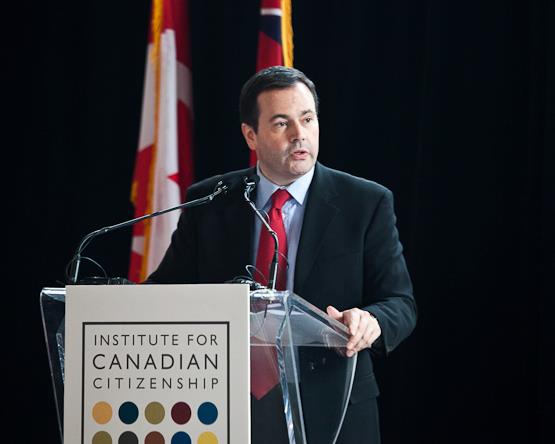Canada News
Jobs minister and labour leader find common ground on foreign workers issue

Immigration Minister Jason Kenney. Photo courtesy of Kenney’s official Facebook page.
EDMONTON — Alberta’s jobs minister and a provincial labour leader found themselves in the unusual position of partly agreeing with each other at a forum in Edmonton on temporary foreign workers.
Both say they want to see a system that allows workers to become permanent residents.
Gil McGowan of the Alberta Federation of Labour told the forum that he has written federal Immigration Minister Jason Kenney to request that all temporary foreign workers who are currently in Canada be allowed to stay.
Jobs Minister Thomas Lukaszuk, meanwhile, says he wants to see an improved temporary foreign worker program that allows workers to become permanent residents.
Kenney announced a moratorium on hiring new temporary foreign workers in the food service industry last month.
The forum was hosted by Migrante Alberta, a migrant workers advocacy group, and a number of people in the audience were temporary foreign workers with concerns about how long they can remain in Canada.
“Thousands of people have come to this country in good faith. You’ve done nothing wrong,” McGowan told the forum, which was held in a lecture theatre at the University of Alberta.
McGowan said the temporary foreign workers program should end for low-wage jobs because the workers lack basic rights which could allow them to organize for better pay. That keeps pay for everyone _Canadians and foreign workers _ low.
“I have sometimes been accused of stoking the animosity between (Canadians and foreign workers). I don’t have a problem with the people in the program. I have a problem with the program itself,” he told the forum.
“In an economy as hot as Alberta’s, you deserve more than $11 an hour.”
Lukaszuk disagreed the program should be scrapped. He rejected the idea that many service job vacancies in Alberta could be filled with unemployed Canadians, noting he didn’t know of many dishwashers who would leave their jobs in Sydney, N.S. to wash dishes in Fort McMurray, Alta.
He said if the federal government knows of employers that abuse the program, they should be punished. He said the moratorium was imposed without notice or consultation with the provinces or the workers themselves.
“What they have done is simply inhumane. I can only imagine what was going through your minds when that was announced,” Lukaszuk told the forum.
“We need you here to stay.”
One temporary worker from the Philippines, who didn’t want to give her name, said outside the forum that she’s been in Canada for almost seven years. She said she has a husband and three children in the Philippines, and has only been able to go back and see them once.
She said it will be a few months before her work permit will need to be renewed, but she is still concerned the moratorium may not be lifted in time and that she may be sent home.
“I’m so worried. It’s really stressful. I can’t concentrate on my work,” she said.
Kenney has promised a slate of changes to the program soon.
Many of the questions at the forum centred on options that foreign workers could exercise in order to prolong their stay until the program is reinstated.
One of the options was staying in Canada illegally. Lukaszuk warned against it.
“Ultimately, you will put yourself in a position where you will be unable legally to enter Canada again,” he told the audience.





















